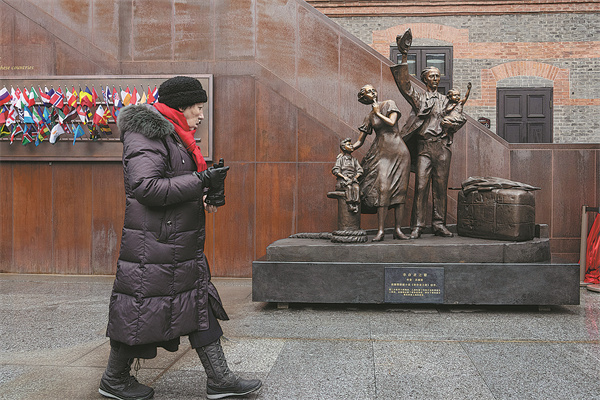

Rough memories
"It was very rough, rough. You really had to depend on the charity organizations to feed you," Brookfield says.
One of the refugees from Germany was a principal from a school, and she set up a school right away. Brookfield studied there for 18 months until Japan bombed Pearl Harbor in December 1941. The Japanese arrested British and Iranian Jews who financed the school, shutting the entire institution down, she says
By the time the school closed, Brookfield was 16. She was searching for small jobs somewhere "to make a few pennies" for her family. However, because Shanghai was under Japanese occupation, the rules "changed from time to time", she says.
While working part-time for a company that dyed cotton, Brookfield says, she was asked to deliver white cotton for dyeing. A group of Japanese soldiers marching in the street spotted her and arrested her.
She was taken to the back of a building and lined up against the wall as the soldiers stood there with their rifles pointed at her, she says.
"They kept aiming as if they were going to pull the trigger, and then they didn't. They started to laugh. They had fun watching me being so scared."
This went on for some time, until Brookfield was taken back to the building to meet a Japanese man who spoke English. He treated her to breakfast and explained that she had been arrested for selling the white cotton, which was confiscated to be used on injured soldiers, she says.
"Whether that was true or not, I wouldn't know."
She was released after signing a document promising not to sell any more white cotton, she says.
She recalls the hard working, but poor Chinese locals in Hongkou district. For them, living conditions were just as bad, if not worse, than those of the Jews. They were oppressed by the Japanese and often had to fight disease and hunger.
Although Brookfield says she did not have many dealings with locals due in part to the language barrier, she has never forgotten the city that unconditionally offered her family sanctuary, at a time when they could go nowhere else.
Brookfield, who now lives in Whittier, California, has visited China four times with her husband. Their journeys took them to Shanghai, Hong Kong and to a Yangtze River cruise.